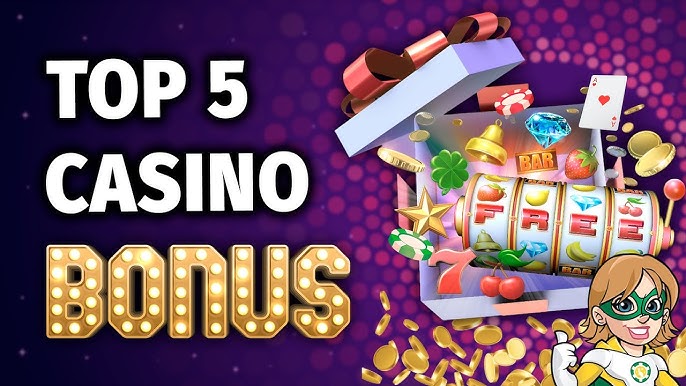
reload bonuses are one of the most versatile and widely offered incentives in the online gambling industry, designed to reward returning players and keep bankrolls topped up after the initial welcome offer has been used. Unlike sign-up promotions that are aimed at new customers, reload promotions target existing players and come in many shapes: match bonuses, free spins, cashback, and loyalty multipliers. Understanding their mechanics, terms, and strategic value can help you decide when to claim them and how to extract the most benefit while managing risk.
At their core, reload bonuses are a marketing tool used by operators to encourage continued play. Typically, a casino or sportsbook will offer a percentage match on a deposit — for example, a 50% reload on a $100 deposit gives you $150 to play with. Some reloads are fixed amounts, some are percentage-based with caps, and others are structured as recurring weekly or monthly promotions. The timing and frequency vary: some sites offer daily or weekly reloads, while others issue targeted promotions to select customers based on activity or loyalty tier.
Types of reload bonuses:
– Match reloads: The most common form, matching part of your deposit with bonus funds subject to caps and minimum deposits.
– Free spins: Often attached to reloads on slot-focused casinos; you receive a set number of spins on specified games.
– Cashback offers: A different model where a portion of net losses over a period is returned, sometimes with no wagering requirement and sometimes as bonus funds.
– No-deposit reloads: Rare but valuable; small bonus amounts or spins provided without a new deposit.
– Loyalty/top-up bonuses: Tied to loyalty programs, offering better reloads for higher-tier members.
Wagering requirements and fair value: A critical part of evaluating any reload bonus is the wagering requirement (WR), often expressed as “x times” the bonus or the sum of bonus plus deposit. For example, a 30x WR on bonus funds of $50 means you must wager $1,500 before you can withdraw winnings tied to the bonus. Some casinos apply WR to bonus funds only, others apply it to both deposit and bonus. Look for offers with lower WRs, or cashback and no-wager bonuses, which allow you to keep winnings without extensive playthrough. Also check game contributions — slots may count 100% toward WR while table games often contribute far less or are excluded.
Bankroll and staking strategy: Treat reloads as an opportunity to extend play rather than a way to guarantee profit. Adjust your stake sizes to accommodate the playthrough. If a reload comes with a 20x WR and you receive $40 in bonus funds, calculate how many bets of your typical size are reasonable before you exhaust the bankroll. Conservative players often reduce bet sizes slightly during playthrough to preserve funds and meet the wagering target with lower variance. If a reload has both a deposit and bonus component subject to WR, prioritize satisfying the easiest-to-clear portion first (common advice: wager through the bonus funds as they usually have the strictest rules).
Timing and promotion stacking: Reloads can be scheduled around weekends, tournaments, or calendar events. Some operators allow stacking of promotions; others strictly prohibit it. Always read the terms to see if claiming one promotion disqualifies you from another. If you play multiple sites, coordinating reload timing to coincide with days when you’re most active can maximize value. For frequent players, weekly or monthly reloads combined with a loyalty program can produce steady supplemental value over time.

Game selection and volatility considerations: Choose games that align with the wagering requirement structure. High RTP (return to player) slot titles with moderate variance are often ideal for playthrough because they provide steady returns and count 100% toward WR. High-volatility games can produce big wins but also rapid losses that make clearing the WR harder. Table games, when allowed, can sometimes offer better edge management, but watch for reduced WR contribution percentages. Video poker and blackjack may be restricted or have low contribution rates due to their low house edge.
Cashback vs. match reload tradeoffs: Cashback offers reduce downside risk by returning a percentage of losses, which can be attractive for players who are risk-averse or who value capital preservation. Match reloads can supply more immediate bonus capital but often come with higher WRs. Decide based on your play style: if you want softer variance and less playthrough hassle, prioritize cashback; if you’re comfortable with playthrough and seeking larger temporary bankroll boosts, match reloads may serve you better.
Avoiding common pitfalls:
– Overlooking the fine print: Exclusions, game weightings, and maximum bet rules during playthrough can invalidate winnings or prevent WR completion.
– Chasing losses with repeated reloads: Reloads can create a feedback loop where chasing a previous loss leads to riskier behavior.
– Ignoring withdrawal restrictions: Some reloads cap withdrawable winnings or convert bonus funds at a fixed rate for withdrawal.
– Not tracking expiry: Many reload bonuses and the wins they generate expire after a set number of days, which can erase any benefit if you don’t act in time.
Legal and tax awareness: Depending on jurisdiction, bonus funds and winnings may be subject to regulation. In most cases online casino bonuses are legal where the operator is licensed, but always verify local laws and whether winnings are taxable. Additionally, reputable casinos clearly display licensing and terms; choosing licensed providers reduces the chance of disputes when withdrawing winnings derived from reloads.
Optimizing long-term value: Use reload bonuses as part of a broader bankroll management strategy. Prioritize operators that combine fair match reloads, reasonable WRs, and transparent loyalty programs. Track effective value by calculating the expected value (EV) of a bonus after accounting for WR, contribution rates, and game RTP. Simple calculators and spreadsheets help you compare offers objectively rather than relying on headline percentages alone.
Case study example (hypothetical): A casino offers a 50% reload up to $100 with a 25x WR on the bonus only. Depositing $100 gives $50 bonus for a total of $150. The WR is 25 x $50 = $1,250 in wagers. If you play mostly 96% RTP slots, the theoretical house edge means the realistic EV depends on your skill in variance management, but the offer boosts your initial playtime significantly relative to depositing alone. If the site also gives 20 free spins with low WR or none, those spins improve the expected value further.
Final recommendations: Always read and compare terms, prioritize bonuses with manageable wagering requirements and full game contributions, and avoid impulsive stacking. Treat reloads as a vehicle to stretch play sessions and test different games rather than a guaranteed profit mechanism. With careful selection and disciplined bankroll control, reload bonuses can become a durable part of a sustainable and enjoyable online gaming strategy.
In summary, reload bonuses are powerful tools for players who understand their mechanics and limitations. When chosen wisely and managed responsibly, they can extend play, reduce downside through cashback, and occasionally produce meaningful returns. Keep an eye on terms, game restrictions, and expiry dates, and integrate reloads into a broader approach that values long-term entertainment and capital preservation over short-term chasing of wins.
Leave a Reply